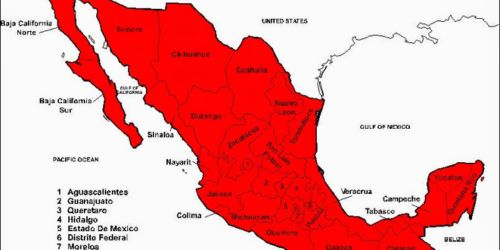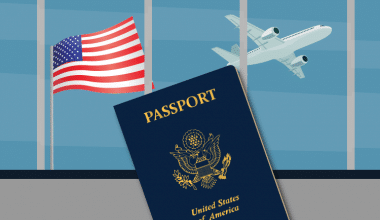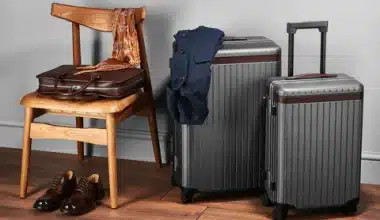The Mexico Travel Ban was a set of restrictions imposed by various countries to limit travel to and from Mexico. The ban was implemented due to concerns over public health and safety, particularly in response to the COVID-19 pandemic. The specific measures and details of the travel ban varied among countries. Including the duration of the ban, the types of travelers affected, and the exceptions or exemptions allowed. The restrictions aimed to reduce the spread of the virus by limiting international travel and preventing the potential importation of new cases. If your interest is aimed at traveling to Mexico, the post below will tell you all you need to know.
What To Know About Mexico Travel Ban?
Several nations established a set of limitations known as the Mexico Travel Ban to restrict travel to and from Mexico. Concerns about public health and safety, particularly in light of the COVID-19 pandemic, led to the implementation of the ban. These measures included border closures, travel bans, and mandatory quarantine or testing requirements for incoming travelers.
Countries did impose certain restrictions and requirements for entry. These measures could vary over time and were subject to change based on the prevailing situation.
#1. Essential Travel
Only essential Mexican travelers are allowed. Such as for work, medical reasons, or humanitarian purposes. However, non-essential travel for tourism or leisure may have been discouraged or subject to additional restrictions.
#2. Health Screenings
Travelers arriving from Mexico might have been subject to health screenings, including temperature checks and health questionnaires.
#3. Specific Regions or Cities
Travel restrictions may focus on particular regions or cities within Mexico that have higher levels of violent crime. These areas may be subject to more stringent advisories, including recommendations to avoid travel altogether or to take specific precautions if travel is necessary.
#4. Safety Precautions
Travel advisories provide safety measures that should be taken while traveling to and from Mexico.
Reasons for Mexico’s Ban
#1. Public Health Concerns
Travel bans may be imposed to prevent the spread of infectious diseases or to manage health emergencies. This can include situations such as outbreaks of diseases like COVID-19 or other public health crises.
#2. Security Concerns
Travel bans can be implemented due to security threats, such as political unrest, armed conflicts, or terrorist activities in Mexico.
#3. Bilateral or Diplomatic Issues
Travel bans can be a response to diplomatic tensions or disputes between countries. Governments may impose travel restrictions as a means of exerting political pressure or expressing displeasure with another country’s actions.
#4. Travel Advisories from Other Countries
Some travel bans or restrictions may be a result of other countries issuing travel advisories warning their citizens against non-essential travel to a specific destination, including Mexico.
Types of Travel Bans
Here are the types of travel bans that may be imposed on Mexico:
#1. COVID-19 Related Travel Restrictions
In response to the COVID-19 pandemic, the U.S. and Canada have implemented travel restrictions with Mexico, and have limited the types of travel allowed across the borders.
#2. Border Closures
Mexico and the U.S. have both implemented border closures for non-essential travel in response to the COVID-19 pandemic.
#3. Visa Bans
Some countries may impose restrictions on tourists or travelers seeking to enter Mexico, by denying or revoking visas for individuals from certain countries.
#4. Import/Export Restrictions
The U.S. has restrictions on certain products from Mexico, which affect travelers who may be carrying these products across the border.
#5. Inner-state Travel Restrictions
The Mexican government may impose travel restrictions, such as curfews and lockdowns, on certain states or regions due to security or health concerns.
#6. Targeted Sanctions
Targeted sanctions could include travel bans and asset freezes against specific individuals or entities in Mexico.
#7. Immigration Restrictions
The U.S. and other countries may implement immigration restrictions aimed at reducing the number of immigrants entering from Mexico, such as the travel ban considered by the Trump administration in 2019.
#8. Health-Related Travel Restrictions
In addition to COVID-19-related travel restrictions, there may be other health-related travel restrictions imposed by other countries if there are food safety concerns or disease outbreaks in certain regions of Mexico.
Mexico Travel Ban 2023
The U.S. government has issued advisories and warnings for certain areas of Mexico due to safety concerns, including violent crime and kidnappings.
Benefits of the Mexico Travel Ban
Implementing travel restrictions on Mexico due can have several potential benefits:
#1. Safety and Security
Travel restrictions can help protect the safety and well-being of both residents and foreign visitors. By limiting travel to areas with high levels of violent crime, the risk of encountering dangerous situations or becoming a victim of crime can be reduced.
#2. Crime Prevention
Restricting travel to areas with high crime rates can help deter criminal activities. With fewer potential targets, criminals may be less likely to engage in illegal activities such as robbery, assault, or kidnapping.
#3. Tourism Development
By addressing and controlling violent crime, travel restrictions can contribute to a safer environment for tourists. Increased tourism can have positive economic impacts, including job creation, revenue generation, and investments in infrastructure and services.
#4. Reputation and Perception
Travel restrictions can signal a commitment by the government to address security concerns. Taking proactive measures to tackle violent crimes and protect travelers can enhance the reputation of a country.
#5. Support for Local Communities
Travel restrictions that target areas with high crime rates can potentially redirect tourism and economic activities to safer regions within the country. This can benefit local communities by stimulating economic growth, creating employment opportunities, and improving the quality of life for residents.
Negative Effects of Mexico Travel Ban
#1. Economic Impact
Travel restrictions can significantly impact the tourism industry, which is a major source of revenue. Limiting travel to certain areas or implementing blanket restrictions can lead to a decline in tourist arrivals. Resulting in reduced income for businesses, job losses, and economic hardships for local communities that rely on tourism.
#2. Perception and Image
Travel restrictions can contribute to a negative perception of Mexico as an unsafe destination. Media coverage of travel advisories and restrictions can reinforce the perception of a country plagued by violence, deterring potential tourists from visiting even areas unaffected by crime.
#3. Inequality and Regional Disparities
Travel restrictions that target specific areas with high crime rates can exacerbate existing social and economic inequalities. By diverting tourism and economic opportunities away from these regions, it can perpetuate disparities and hinder the development of marginalized communities that are already facing challenges.
#4. Disruption of Cross-Cultural Exchange
Travel restrictions can impede the free movement of people and hinder cultural exchange and understanding. Limiting travel opportunities for individuals from different countries can reduce opportunities for cultural immersion, educational experiences, and the exchange of ideas and perspectives.
#5. Negative Impact on Local Businesses
Travel restrictions can have a detrimental effect on small businesses, hotels, restaurants, and other tourism-related enterprises that rely on international visitors. The decline in tourist arrivals can lead to financial struggles, closures, and job losses in these sectors.
Reasons For Decline in Tourist Restrictions
Here are some tips that may help reduce the effect of travel restrictions on Mexico:
#1. Check Official Travel Advisories Regularly
Before planning a trip to Mexico, check the official travel advisories of your home country and the Mexican government. This will help you get the latest information on the safety situation and any travel restrictions in place.
#2. Choose Safe Tourist Destinations
Consider visiting tourist areas that have a lower incidence of crime and violence, which includes high-traffic tourism areas.
#3. Use Reputable Travel Companies
Use travel companies with a good reputation and established safety protocols.
#4. Take Extra Security Measures
Be vigilant at all times and take extra security measures. Such as avoiding traveling alone, traveling in groups, and avoiding unlit areas at night. Also, keep your valuables hidden and locked in a secure location.
#5. Learn About Local Customs
Research the local customs and laws so that you can avoid unintentionally breaking any rules and drawing unwanted attention.
#6. Know What to Do in an Emergency
Keep the contact details of your embassy or consulate on hand and know what to do in case of an emergency.
These are some of the countries that have issued travel restrictions or advisories for Mexico specifically due to violent crimes. Some of the countries that have issued these types of advisories include the United States, Canada, Australia, New Zealand, France, Germany, and the United Kingdom. Travelers should check the official travel advisories of their government before planning a trip to Mexico to get the latest information on any travel restrictions or advisories that may be in place.
Can I Travel To Mexico Right Now?
There are currently travel advisories and restrictions in place due to safety concerns and the ongoing COVID-19 pandemic. Some states in Mexico have been issued a Do Not Travel warning by the U.S. State Department, while others have various levels of travel advisories in place. Travelers should review state-specific advisories and check with their airline and travel insurance provider for any specific requirements or restrictions before planning a trip to Mexico.
Are There Any Travel Warnings For Mexico?
Yes, there are several travel warnings for Mexico due to safety concerns, including violent crime, homicides, kidnappings, carjacking, and assaults. Some areas of Mexico have increased risk, and travelers should maintain a high level of caution, especially in areas outside of the frequented tourist areas. The Australian government states that Mexico has a high risk of violent crime, and advises against traveling at night outside major city centers. Travelers need to stay up-to-date with the latest travel advisories and take precautions to ensure their safety while traveling in Mexico.
Are Travel Restrictions Lifted In Mexico?
There is no clarity as to whether travel restrictions have been fully lifted in Mexico. While some restrictions have been lifted for fully vaccinated travelers from certain countries. In the United States and Canada, restrictions may still be in place for non-essential travel or for travelers who are not fully vaccinated. Travel advisories may still be in place due to safety concerns such as the ongoing COVID-19 pandemic or other risks. Travelers should review state-specific advisories and check with their airline and travel insurance provider for any specific requirements or restrictions before planning a trip to Mexico.
Is It Safe To Travel To Mexico Right Now 2023?
There are travel warnings and crime risks associated with Mexico, including violent crime and COVID-19, that travelers should be aware of. Six Mexican states have received a Do Not Travel alert from the U.S. State Department, and additional regions have various levels of travel restrictions. Tourism authorities also emphasize that it is generally safe to travel to Mexico if proper precautions are taken. The safety situation can vary greatly depending on the specific location and circumstances. Travelers should review state-specific advisories before planning a trip to Mexico.
What Do I Need To Fly To Mexico?
To fly to Mexico, you will need:
- A valid passport or travel document.
- A completed tourist card (Multiple Immigration Forms).
- Any additional documents required by individual states, such as COVID-19 testing or vaccination records.
- For US Citizens traveling by air, a valid passport book is required.
Do I Need A Visa To Go To Mexico?
No, US citizens and US Green Card Holders do not need a visa to go to Mexico. However, Mexican authorities require citizens to travel with a valid passport and a completed tourist card. Which is also known as the Multiple Immigration Form (FMM), is required for entry. However, if you are planning to stay in Mexico for longer than 180 days or considering a long-term relocation, a Mexican visa may be required.
Conclusion
Travelers were advised to stay updated on the latest travel advisories and restrictions issued by their respective governments and to follow all necessary protocols and guidelines for safe travel. The Mexico travel ban refers to the restrictions and guidelines imposed by various countries on traveling to Mexico in response to certain events or concerns.
These restrictions can take different forms, such as advisories, warnings, or outright bans. It is essential for travelers to be aware of these restrictions and to follow the guidelines issued by their respective governments. It’s also important for travelers planning a trip to Mexico to research and familiarize themselves with the current situation on the ground. This includes understanding the local customs, culture, and laws. Also, be aware of any specific safety precautions recommended for the areas they plan to visit.
Related Articles
- HOW CANCEL FOR ANY REASON TRAVEL INSURANCE WORKS: Detailed Guide
- 311 RULE: All You Need To Know About TSA Liquid Luggage
- DO YOU NEED A PASSPORT TO TRAVEL WITHIN THE US IN 2023?
- Can You Smile in a Passport Photo? The Real Reason You Can’t!
- Can I Travel With Expired Passport






